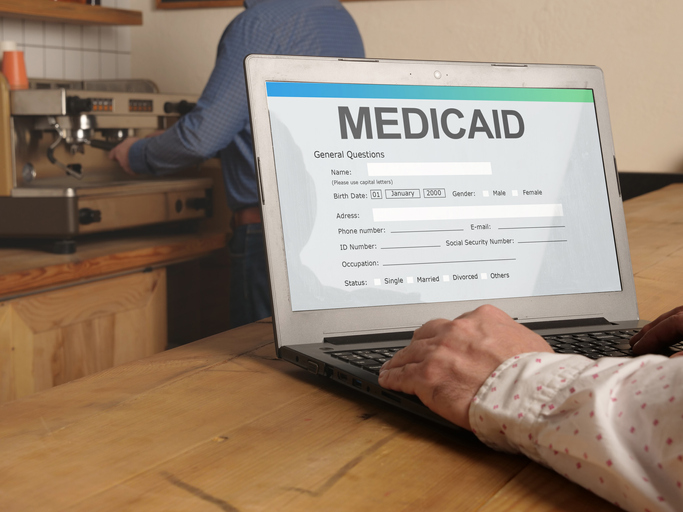Most states now have approved Medicaid expansion.
During the COVID-19 pandemic, Medicaid enrollment ballooned from 23 million to 95 million as eligibility requirements were relaxed and states were given financial incentives to expand Medicaid rolls. In fact, throughout the pandemic, states couldn’t kick anyone off Medicaid unless they died or withdrew.
In early 2023, more than 95 million Americans were enrolled in Medicaid. According to the Center for Medicare and Medicaid Services (CMS) data, $80.6 billion was improperly spent in 2022, and a staggering $98 billion was misspent in 2021. Most of these improper payments (66 percent) raised red flags due to eligibility issues.
Before the pandemic upended our health care system, Medicaid was supposed to operate as a program to supply health care to those who could not work or afford it. However, during the pandemic, Medicaid became the default health care option for millions of Americans.
Too Much Medicaid Hurts
To provide care to those who truly need it, and keep insurance premiums more affordable to businesses and families who pay for private health insurance, states need to stop paying for people who do not qualify for Medicaid.
Now, with nearly one-in-four Americans receiving health care from Medicaid, which was originally designed to care for the poor and disabled, states are preparing to comb through their Medicaid rolls and remove ineligible folks.
Iowa’s Senate Bill 494 attempts to do just that by updating the state’s eligibility determination process. Beginning in 2026, it is assumed that 8,000 Medicaid enrollees will lose eligibility because they are not eligible for Medicaid benefits in the Hawkeye State.
Senate Bill 494 seeks to reform Medicaid eligibility requirements. Nearly 900,000 Iowans are enrolled in Medicaid and associated government-run health care plans, however, Iowa reports only catching 287 cases of improper payments. That tiny number is the tip of the iceberg, with the vast majority of wasted dollars going to insurance companies to pay for Medicaid policies for people who do not qualify.
Protecting the Needy
Eligibility determination involves verifying who someone is and constructing a clear picture of their financial need. For people who are homeless, or may not routinely use a bank, this can be so burdensome that states may simply deem it too difficult and focus on other areas of program integrity. SF 494 Section 3, “requires that prior to the HHS awarding public assistance benefits to an applicant, the applicant shall complete, through a variety of available methods, a computerized identity authentication process to confirm the identity of the applicant through a knowledge-based questionnaire consisting of financial and personal questions…tailored to assist persons without a bank account or those who have poor access to financial and banking services.”
Using private actors to ensure that Medicaid fraud is kept to a bare minimum just makes sense. Managed care providers should embrace this concept and integrate this as part of their charge. States should find ways to meaningfully communicate with Medicaid enrollees to help improve their overall care and determine their eligibility for scarce resources.
As unemployment increases, so does the size and cost of Medicaid as it is currently constructed. If Iowa truly sought to reform its Medicaid problem, it would take drastic action to ensure that each and every Medicaid recipient is truly in need of the assistance program.
Unless Iowa, and several other states, do what is necessary to curtail corruption and prevent people from taking advantage of Medicaid expansion, the problem will only grow worse.
Now that the pandemic has officially ended, it is also time to end the expansion and exploitation of government-run health care programs.
It is also patently unfair for Iowa citizens who are not on Medicaid to foot the bill for those who choose not to work, and therefore, cannot pay for their own medical services.
Matt Dean (mdean@heartland.org) is a senior fellow for health care policy at The Heartland Institute. A version of this article appeared in The Center Square on May 16, 2023. Reprinted with permission.
